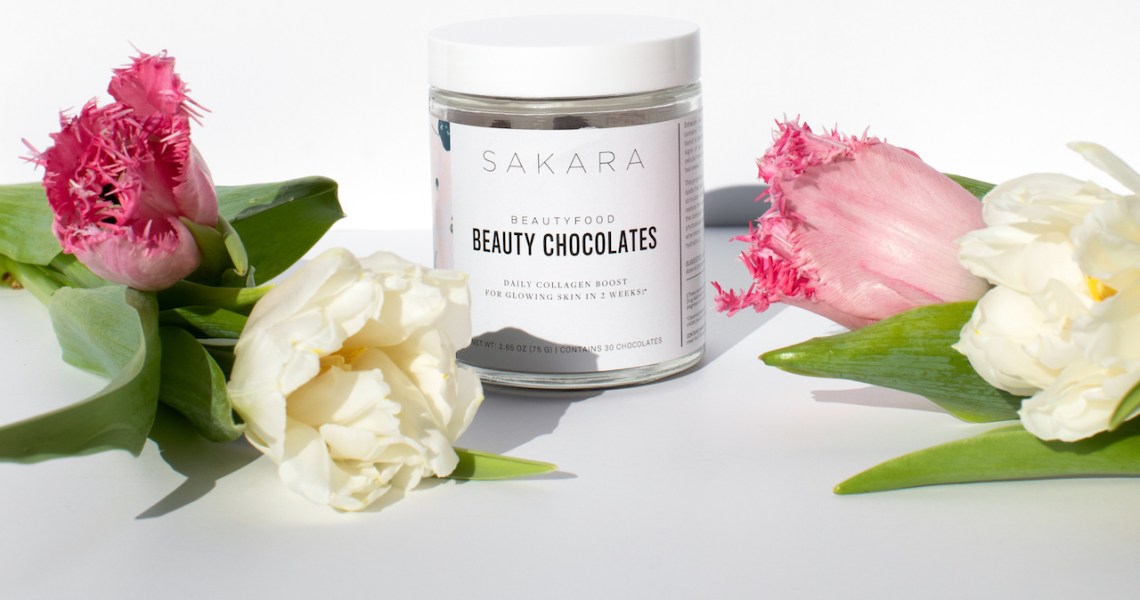Functional foods and beverages, like kombucha and protein bars, touting health benefits are not new — but brands selling them have been drawing an increasingly direct line between inner wellness and outer beauty.
The functional foods category is projected to reach $276 billion in global sales by 2025, according to Grand View Research. And beauty functionality is a growing part of this equation, boosted by images of celebrities like Kourtney Kardashian drinking collagen beverages and the beauty “shelfie” craze increasingly including fridge pictures alongside medicine cabinet collections. It is the natural culmination of the dual rise of the wellness and skin-care industries, as consumers increasingly buy into the concept that the products they ingest and put on their bodies should work to transform their skin versus cover problems.
“As a whole, it appears more consumers are interested in health and beauty connections, including taking an ‘inside-out’ approach to their looks,” said Kenya Watson, an associate analyst at CB Insights. “This, along with a shift to more individuals focusing on preventative beauty measures, are some of the factors driving the rising interest in segments like skin care, supplements, and now functional beverages and foods.”
“We’ve always been very upfront with our customers that skin care for dealing with the majority of skin issues is actually so much deeper than topical products, and it really starts with the holistic view,” said Priscilla Tsai, the founder and CEO of organic skin-care brand Cocokind. Previously exclusively selling beauty products, Cocokind is launching plant-based functional beverages for the first time on June 9. These include an adaptogenic latte, as well as a tonic with chlorophyll and another with vitamin C.

Beauty e-tailers are also offering more functional beauty foods and beverages these days. Goop’s “inner beauty” section of its e-commerce shop has beverages such as collagen sparkling tea from the beverage brand SkinTe. Meanwhile, CAP Beauty has an entire “grocery” section on its site, complete with a wide range of food and beverage products intended to enhance beauty, including a $34 bottle of Wonder Valley olive oil made with younger olives that boast more “polyphenols — the powerful fountain of youth-like antioxidant” and a $26 jar of CAP Beauty’s own matcha coconut butter, which is said in the description to have “skin healing properties.”
“CAP Beauty was one of our first retailers,” said Alison Carroll, the owner of Wonder Valley. Based in Joshua Tree, California, the upscale olive oil brand is geared toward “a younger, wellness-conscious audience,” she said. “We wanted to carve out a space for olive oil for a new audience.” The brand crossed directly over into beauty products last year and sells a collection of skin-care products alongside its olive oil, including a face oil, body oil and oil cleanser.

The rise of functional food and beverages for beauty is following in the footsteps of beauty supplements, which have permeated even deeper into the beauty world with a strong presence at mainstream retailers like Sephora and Walmart. Sakara Life, one of the earliest functional food and beverage companies focused on beauty, is now expanding its offering of beauty supplements to complement its full line of planned meals and functional foods. These include a Beauty Super Bar, with ingredients it says are “clinically shown to reduce imperfections, even skin tone, boost hydration and increase firmness,” and its beauty chocolate with ceramides that are said to improve skin.
“I think that there is actually a lot more awareness in this space of healthy food and the concept around food as medicine,” said Whitney Tingle, the co-founder and co-CEO of Sakara Life. “When we first started the company about 10 years ago, wellness and healthy eating was not very popular, and superfoods were not very talked about.”
Functional beverages are especially ramping up their beauty offerings. Beverage brand Goldthread, for example, sells herbal tonics with both health and beauty functionalities promoted. Its green tonic, for example, contains adaptogens and herbs said to be capable of “enhancing the strength, resiliency and sheen of bones, hair, nails, teeth and skin,” according to the site’s product description.
“People are looking to maintain or enhance their overall external physical beauty,” said Goldthread founder William Siff, who is a clinical herbalist and licensed acupuncturist. “One of the things I learned early on in my practice was facial acupuncture, and I had a significant amount of people over the years in the clinic who would come in just for things like that. But my overall focus has been on beauty as an outgrowth of health on the inside.”
Collagen is an especially popular functional beauty beverage ingredient at the moment, with products like Vital Proteins’ collagen creamers and lattes taking off in the market thanks to celebrities and influencers like Kylie Jenner and Candice Swanepoel. The brand introduced its powder collagen creamer in 2017 after a survey of customers found that over 50% of them were adding collagen supplements to their coffee. The company announced in September 2019 that it would be launching a liquid creamer in 2020, as well.
“That really enlightened us that collagen was more than just a supplement,” said Vital Proteins founder and CEO Kurt Seidensticker. “It was actually a functional food additive; people were taking the benefits of collagen and incorporating it into their daily routine.”
Brands in this sector are expecting an even greater interest in wellness products, as a result of Covid-19.
“We were growing at a very substantial rate pre-Covid,” said Seidensticker. “Grocery stores were a little bit more challenged by Covid, with social distancing and restrictions, so we saw a lot of consumers shift to e-commerce.” He said the brand’s online sales growth in March, April and May has been around 30% month-over-month.
“People are focused on their health and wellness right now,” he said. “They were focused before, but now they’re even more focused on their well-being.”




